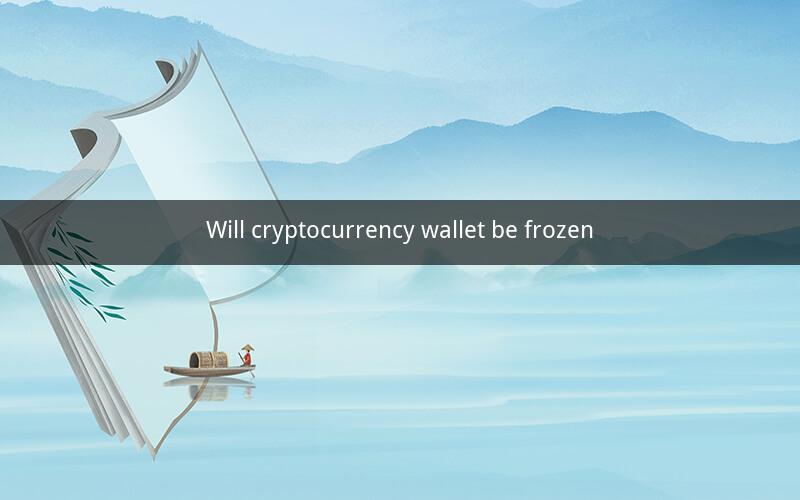
Cryptocurrency Wallet Freezing: Understanding the Risks and Precautions
Table of Contents
1. Introduction to Cryptocurrency Wallets
2. The Concept of Wallet Freezing
3. Reasons for Wallet Freezing
4. Legal and Regulatory Factors
5. Security Measures to Prevent Freezing
6. Preventive Actions for Users
7. Conclusion
1. Introduction to Cryptocurrency Wallets
Cryptocurrency wallets are digital tools used to store, send, and receive cryptocurrencies. They come in various forms, including software wallets, hardware wallets, and paper wallets. Each type has its own set of features and security levels, making them suitable for different users based on their needs and risk tolerance.
2. The Concept of Wallet Freezing
Wallet freezing refers to the temporary or permanent restriction of access to a cryptocurrency wallet. This can occur due to various reasons, such as security breaches, legal investigations, or regulatory actions. When a wallet is frozen, the user is unable to access their funds until the issue is resolved.
3. Reasons for Wallet Freezing
Several factors can lead to a cryptocurrency wallet being frozen:
- Security Breaches: Hackers may gain unauthorized access to a wallet, either through phishing attacks or exploiting vulnerabilities in the wallet software.
- Legal Investigations: Law enforcement agencies may freeze a wallet as part of an investigation into illegal activities, such as money laundering or financing terrorism.
- Regulatory Actions: Financial authorities may freeze a wallet if it is associated with a company or individual under investigation for violating financial regulations.
- User Errors: Mistakes in handling private keys or incorrect wallet addresses can lead to funds being locked away.
4. Legal and Regulatory Factors
The legal and regulatory landscape surrounding cryptocurrencies varies by country. Some jurisdictions have strict regulations on the use and storage of cryptocurrencies, which can increase the risk of wallet freezing. It is crucial for users to be aware of the laws and regulations in their respective countries to mitigate the risk.
5. Security Measures to Prevent Freezing
To prevent wallet freezing, users can take several security measures:
- Use Reputable Wallets: Choose a well-established and reputable wallet provider to minimize the risk of security breaches.
- Backup Private Keys: Regularly backup private keys and store them in a secure location, such as a hardware wallet or a safe deposit box.
- Use Strong Passwords: Create strong, unique passwords for accessing your wallet and enable two-factor authentication for an extra layer of security.
- Stay Informed: Keep up-to-date with the latest security threats and best practices for protecting your cryptocurrency wallet.
6. Preventive Actions for Users
Users can take several actions to prevent their wallets from being frozen:
- Comply with Regulations: Understand and comply with the legal requirements of your country regarding cryptocurrency storage and transactions.
- Report Suspicious Activity: If you suspect your wallet has been compromised or frozen, report the incident to the wallet provider and relevant authorities immediately.
- Use Trusted Exchanges: When exchanging cryptocurrencies, use reputable exchanges that have a good track record of security and compliance.
- Educate Yourself: Learn about the risks associated with cryptocurrency wallets and take steps to protect your investments.
7. Conclusion
While the risk of a cryptocurrency wallet being frozen is a concern for many users, it is possible to mitigate these risks through careful planning and security measures. By understanding the reasons for wallet freezing, staying informed about legal and regulatory requirements, and implementing strong security practices, users can protect their cryptocurrency investments.
Questions and Answers
1. Q: Can a cryptocurrency wallet be frozen without any notice?
A: Yes, it is possible for a wallet to be frozen without prior notice, especially if it is part of a legal investigation or regulatory action.
2. Q: Are all types of cryptocurrency wallets equally susceptible to freezing?
A: No, hardware wallets are generally considered more secure and less likely to be frozen compared to software wallets.
3. Q: Can freezing a wallet prevent money laundering?
A: Yes, freezing a wallet can be a preventive measure against money laundering, as it restricts access to the funds until the investigation is complete.
4. Q: How long can a cryptocurrency wallet be frozen?
A: The duration of a wallet freeze can vary depending on the reason for the freeze and the legal process involved. It can range from a few hours to several months.
5. Q: Can a frozen wallet be thawed?
A: Yes, a frozen wallet can be thawed once the issue that led to the freeze has been resolved. This may involve cooperation with law enforcement or regulatory authorities.
6. Q: Is it necessary to report a frozen wallet to the wallet provider?
A: Yes, it is advisable to report a frozen wallet to the wallet provider as soon as possible to ensure they can assist you with the issue.
7. Q: Can a user legally access their frozen wallet?
A: No, a user cannot legally access their frozen wallet until the issue is resolved and the freeze is lifted.
8. Q: Are there any legal implications for using a frozen wallet?
A: Yes, attempting to access a frozen wallet without permission can have legal implications, including potential fines or penalties.
9. Q: Can a user recover funds from a frozen wallet?
A: The ability to recover funds from a frozen wallet depends on the reason for the freeze and the actions taken by the user and relevant authorities.
10. Q: How can a user stay informed about the legal and regulatory changes affecting cryptocurrency wallets?
A: Users can stay informed by following reputable news sources, attending cryptocurrency conferences, and consulting with legal experts in the field.